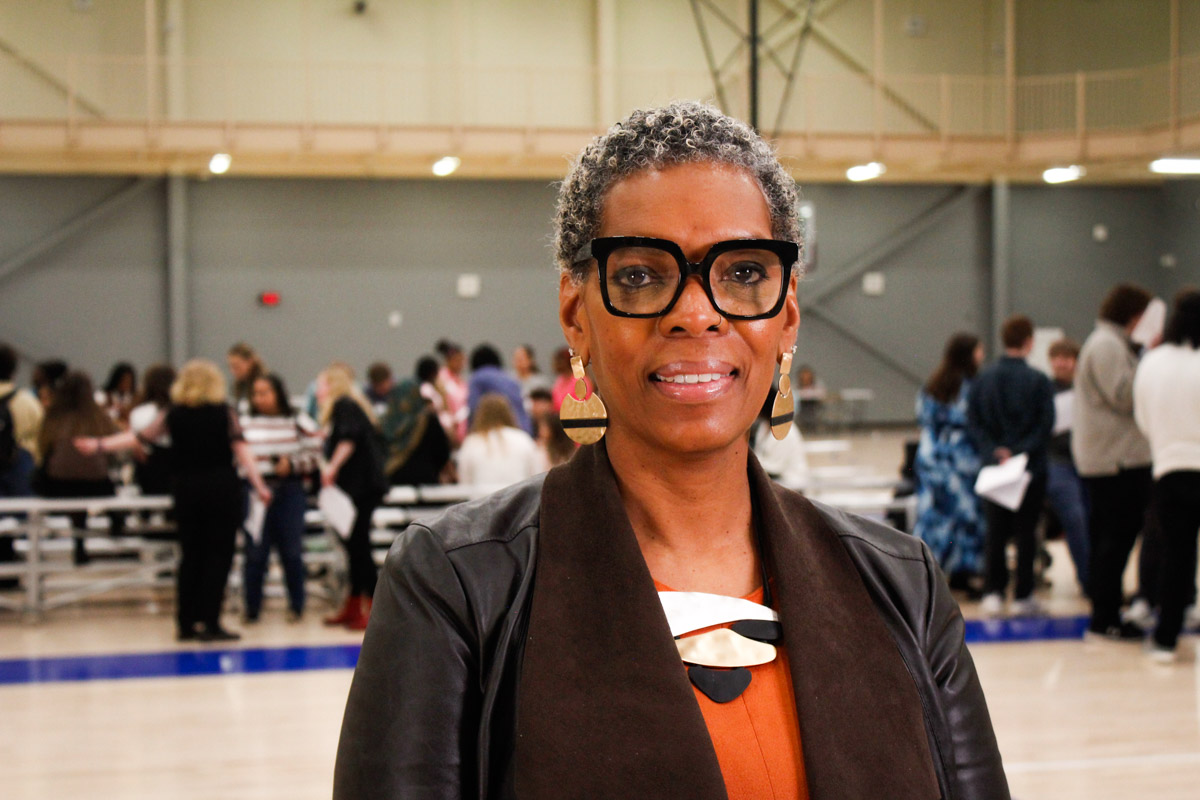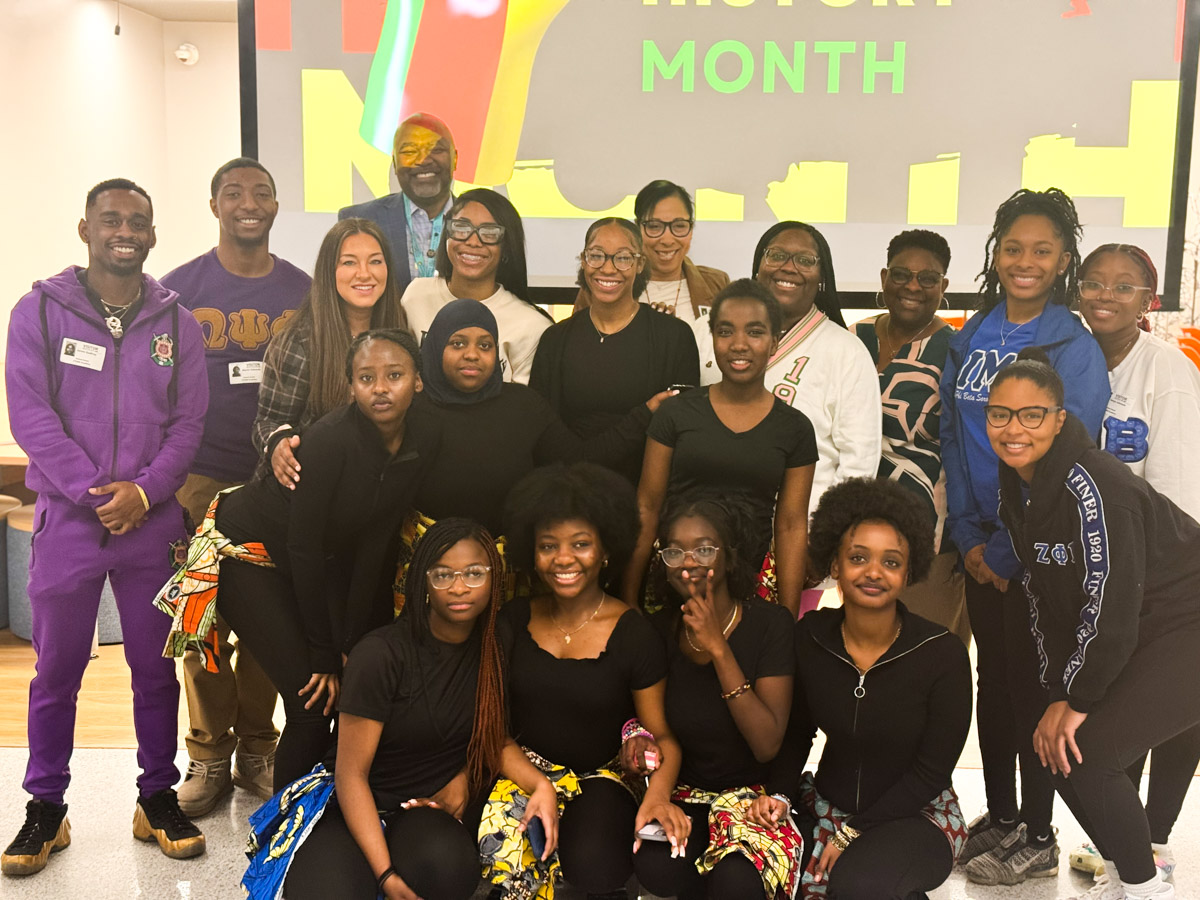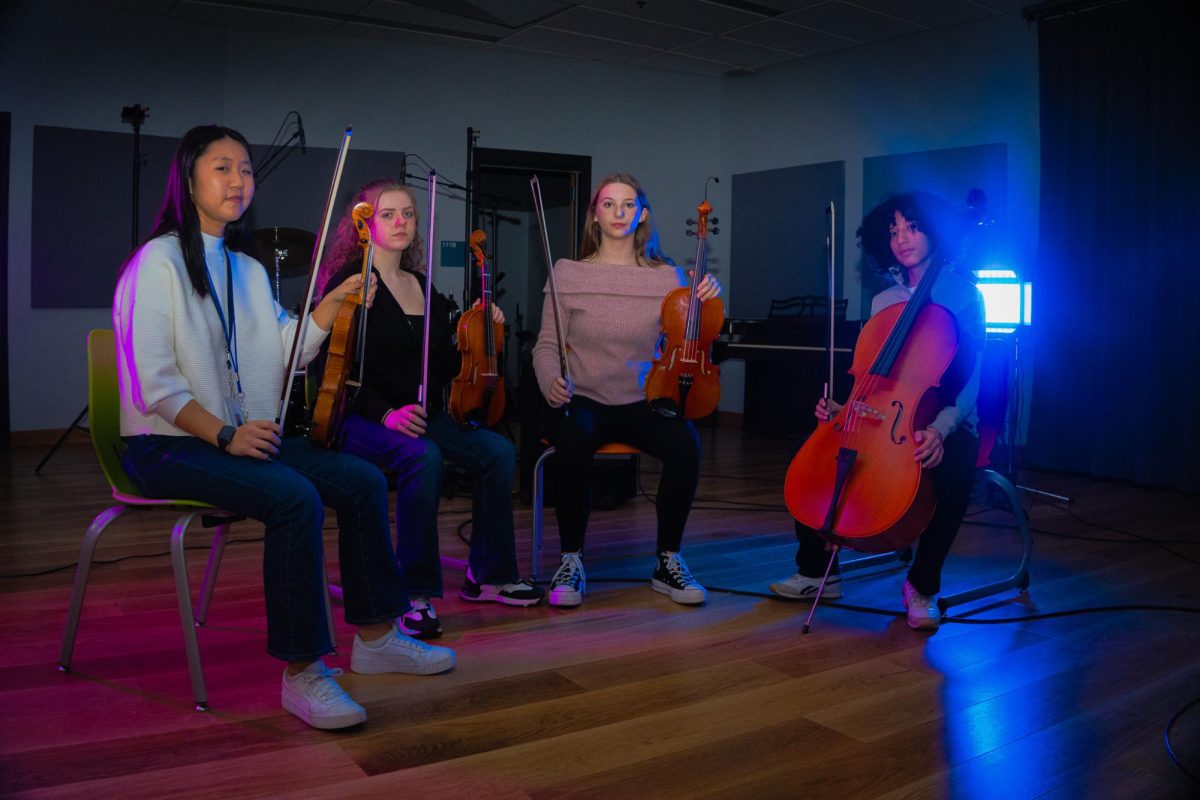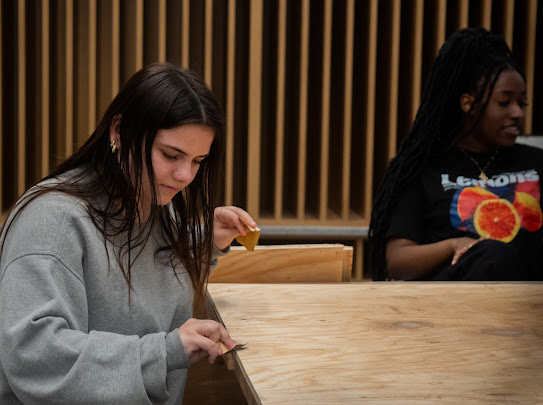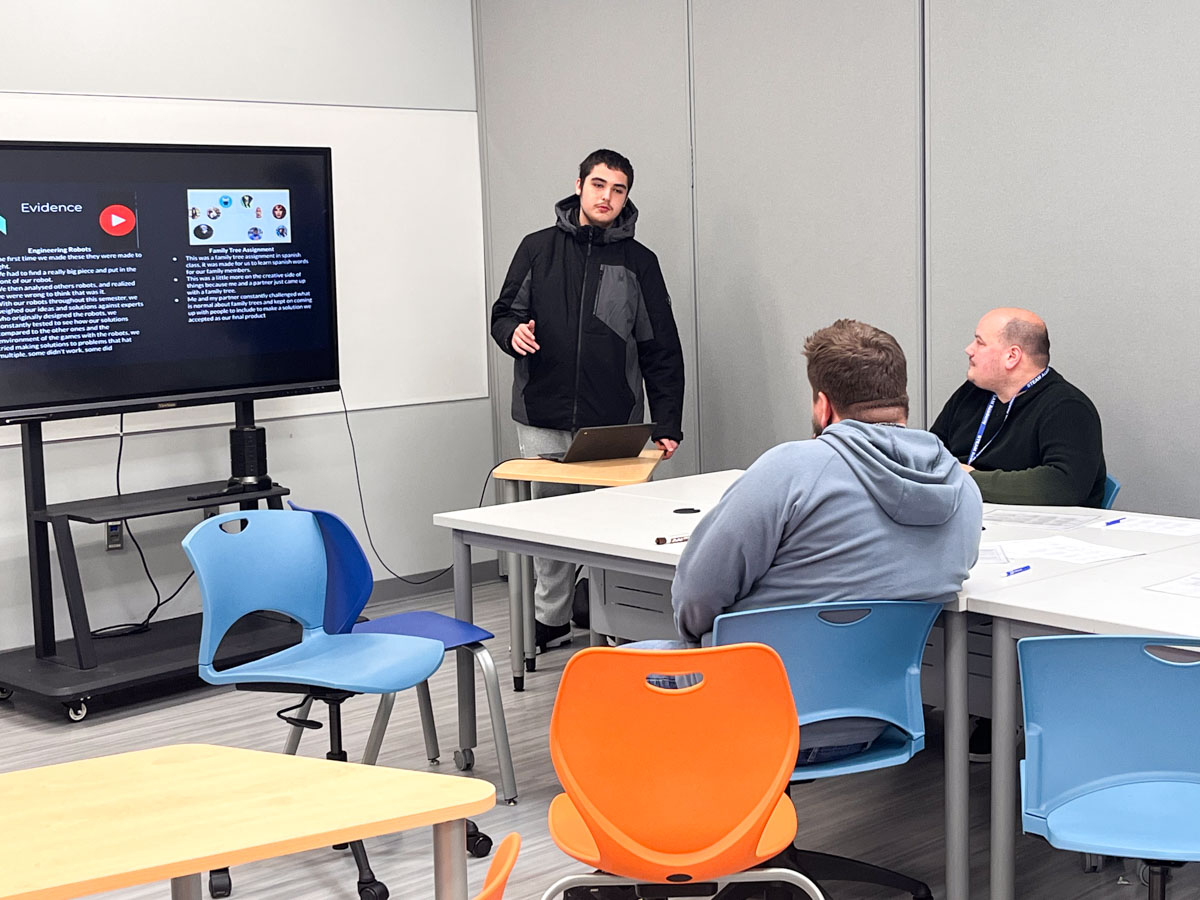This week the Sophomores at STEAM Academy have been engaged in defenses of learning. A defense of learning is a presentation that the sophomores had to put together, using projects and assignment over the past two years that support the idea that they have grown in the STEAM Habits. They present to different administrators, teachers, and community members. In exhibiting that they have improved in their STEAM Habits, they show that they are eligible to progress to the next grade. They chose four habits out of six; the habits are Persistent Learner, Altruistic and Culturally Competent Leader, Creative and Critical Thinker, Intentional Collaborator, Active and Responsible Decision Maker, and Effective Communicator.
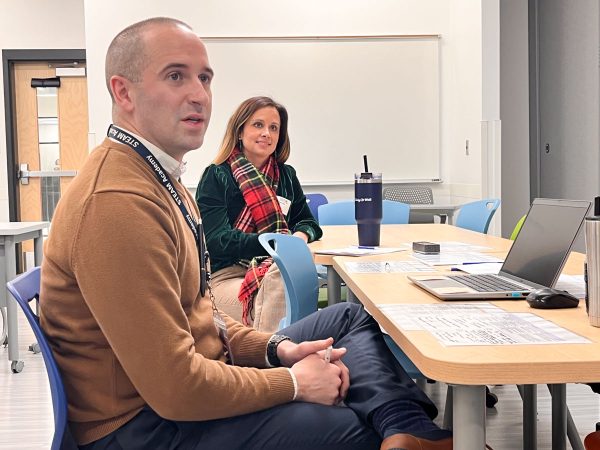 A Recent conversation with one of our administrator, Mr. Hendrix, and a teacher that has been overviewing some of the interviews, Mrs.Garrison, points out why the defenses are necessary, not only for the Sophomores, but for all grade levels. Mr. Hendrix noted, “The importance and value of the defenses of learning is really a demonstration of authentic learning experiences that students have done in their time here at STEAM, and to show growth over time; then also, to be a good representation of the habits and the soft skills that have been learned throughout this experience. They can carry over into college interview, job interviews, and really skills that will be used throughout life to be successful to higher education and career as well.” Mrs. Garrison had a similar viewpoint on the defenses and their importance. She said in an interview, “The defenses are a product of the fact that younger and younger students are asked to defend their learning. It started off with people that were earning their PHD’s and other doctorate degrees, then moved down to defending masters degrees, and now you even see bachelors candidates who are having to defend portfolios and other types of learning. I think that because STEAM is so tightly tied to the duel credit model it just makes sense for highs school students to practice those defenses as well.”
A Recent conversation with one of our administrator, Mr. Hendrix, and a teacher that has been overviewing some of the interviews, Mrs.Garrison, points out why the defenses are necessary, not only for the Sophomores, but for all grade levels. Mr. Hendrix noted, “The importance and value of the defenses of learning is really a demonstration of authentic learning experiences that students have done in their time here at STEAM, and to show growth over time; then also, to be a good representation of the habits and the soft skills that have been learned throughout this experience. They can carry over into college interview, job interviews, and really skills that will be used throughout life to be successful to higher education and career as well.” Mrs. Garrison had a similar viewpoint on the defenses and their importance. She said in an interview, “The defenses are a product of the fact that younger and younger students are asked to defend their learning. It started off with people that were earning their PHD’s and other doctorate degrees, then moved down to defending masters degrees, and now you even see bachelors candidates who are having to defend portfolios and other types of learning. I think that because STEAM is so tightly tied to the duel credit model it just makes sense for highs school students to practice those defenses as well.”
Although the teachers see the practicality and the usefulness of it, students might seem to disagree with the vast significance of making and presenting the defenses. A recent interview with a student at STEAM, Chloe Gaddis, who presented her interview today said, “I understand the defenses are meant to help you look back on yourself, and prove your worth to go to BCTC. I understand where all that comes from, and I’m not necessarily against them, but I think they’re a little bit redundant. I think that they’re pretty annoying to do every year, especially since the time they give you is like five minutes in the morning. I don’t know about everyone, but that’s not how my brain works. I can’t just do five minutes a day and gather my thoughts in that much time; that’s not how I write, not how I work, so I just ended up having to do mine on Thanksgiving break, and they’re not that hard to do, but they’re a lot of stress on some people.” She also mentions the odd grading procedures, on how the fact that, although it’s not actually an assignment for one of your classes, it’s added to an English grade. She also mentions, “I think it’s kind of odd, but kind of nice to be able to look back on yourself and kind of prove to yourself that you’re a good student, and to other people too, and that you have the skills to do better in life and in the future.”

